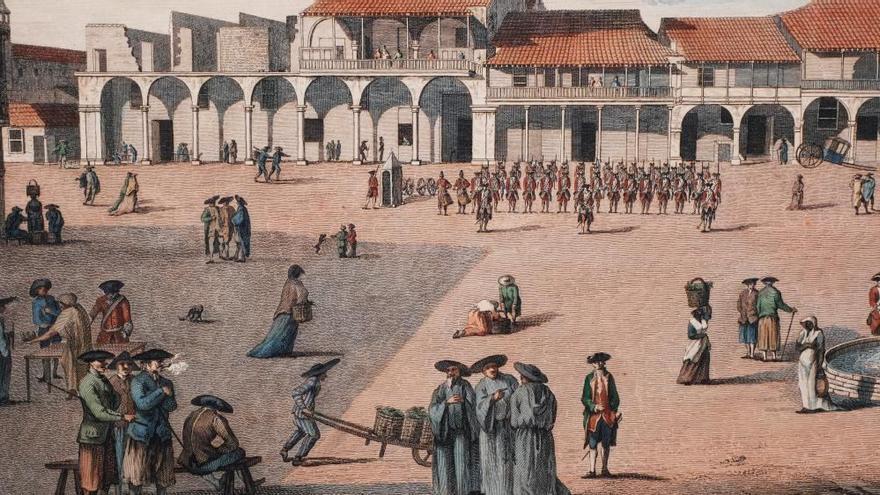
![]() 14ymedio, Yunior Garcia Aguilera, Madrid, August 16, 2023 — Why did it take Cuba so long to gain its independence? By the time most of its neighboring colonies had won their freedom, why was Cuba still known as “the ever loyal one”?
14ymedio, Yunior Garcia Aguilera, Madrid, August 16, 2023 — Why did it take Cuba so long to gain its independence? By the time most of its neighboring colonies had won their freedom, why was Cuba still known as “the ever loyal one”?
So why has the Castro regime lasted so long? Jorge Videla was dictator of Argentina for only seven and a half years, Augusto Pinochet ruled Chile for seventeen and Francisco Franco was caudillo of Spain for thirty-six. But Castro-ism has been entrenched in Cuba for more than six decades! And we are not talking just about exile, repression and censorship. These years have been marked by poverty, financial ruin and backwardness. How is it possible that we have not been able to get ourselves out of this pothole?
I try to avoid looking back on our past with pessimism, though at times it is inevitable to find some examples of history repeating itself. “Continuity” (another term for laziness), “loyalist reform” (change so that everything can stay the same), and “creative resistance” (I am suffocating but I enjoy it) are faults that have almost always been with us, making us prone to fatalism
During Havana’s eleven years under British occupation, its inhabitants never much bothered trying to learn English. In language, religion and culture, we have always felt closer to Madrid than to London. It is said that local peasants refused to sell the invaders fruit and that some even tried to poison the “redcoats” by feeding them bananas while they were intoxicated.
Nevertheless, the British never really faced much opposition. In some stately homes tea began being served at five in the afternoon, at which time more than one local official gladly offered his services to them. Their uniforms were the color of the mamey,* so tea time came to be known as “the hour of the mameys.” But, bottom line, the mamey proved to be quite a luscious fruit. A popular rhyme of the period went something like “The girls of Havana have no fear of damnation. / You can find them with the British / In the barrels at the rice plantation.” In July of 1763 the English traded us for Florida and sailed off… leaving us not much worse for wear.
It was then that Spain began to pamper us a bit, heaping enlightened despotism on top of natural paternalism: “Everything for the people, but without the people.” Cuba gave birth to one of the greatest and most brilliant men of the time, as some say: Don Francisco de Arango y Parreño. The American historian and hispanicist Allan J. Kuethe says of him, “He could have been a Bolivar, but he died like a true bureaucrat.” Beyond his contributions to trade and the island’s development, Arango y Parreño was a reformist, an smart guy, a man loyal to the crown.
Haiti was one of the first countries in Latin America and the Caribbean to obtain its independence. And today some pro-Castro ideologues claim Cuba and Haiti are two spurs from the same rooster. What is undeniable, however, is that, after the Haitian revolution (1791-1804), the Cuban elite did everything possible to keep the same thing from happening here. “Fear of the black man” was stronger than the urge to be free. Rather than showing solidarity, what Cuba actually did was take over Haiti’s position in the world market. For us, that was what” having spurs” meant.
Cuba is undergoing the worst crisis in its history and today others are benefitting from our misfortune. How many businesses in other latitudes are prospering because there is a dictatorship in Cuba?
The regime has its reformists, whose responsibility is to patch things up from time to time. But the system is more tattered than a carnival banner. Neither Murillo, nor much less Gil,** could fill Arango y Parreño’s shoes.
There are those who opt for satire or memes, like the residents of Havana during the time of the mameys. Others are more lukewarm and prudent, seeing themselves as legitimate partners. There are those who give very radical speeches but deep down prefer Cuba to remain the same, if for no other reason than to serve as a bad example. There are even those who feign a radical, extremist stance, then spend every hour of the day attacking any objective attempt, any realistic initiative, to attain democracy.
But laziness in not conducive to liberty. It has always come at the cost of blood, sweat and tears. We are up to our eyeballs in tears and blood. It’s time for us to get a little wet. Sweat is the blood of our times.
Translator’s notes:
*A tropical fruit popular in Latin America and the Caribbean.
**Minister of Economic Planning Marino Murillo and Economics Minister Alejandro Gil.
____________
COLLABORATE WITH OUR WORK: The 14ymedio team is committed to practicing serious journalism that reflects Cuba’s reality in all its depth. Thank you for joining us on this long journey. We invite you to continue supporting us by becoming a member of 14ymedio now. Together we can continue transforming journalism in Cuba.
